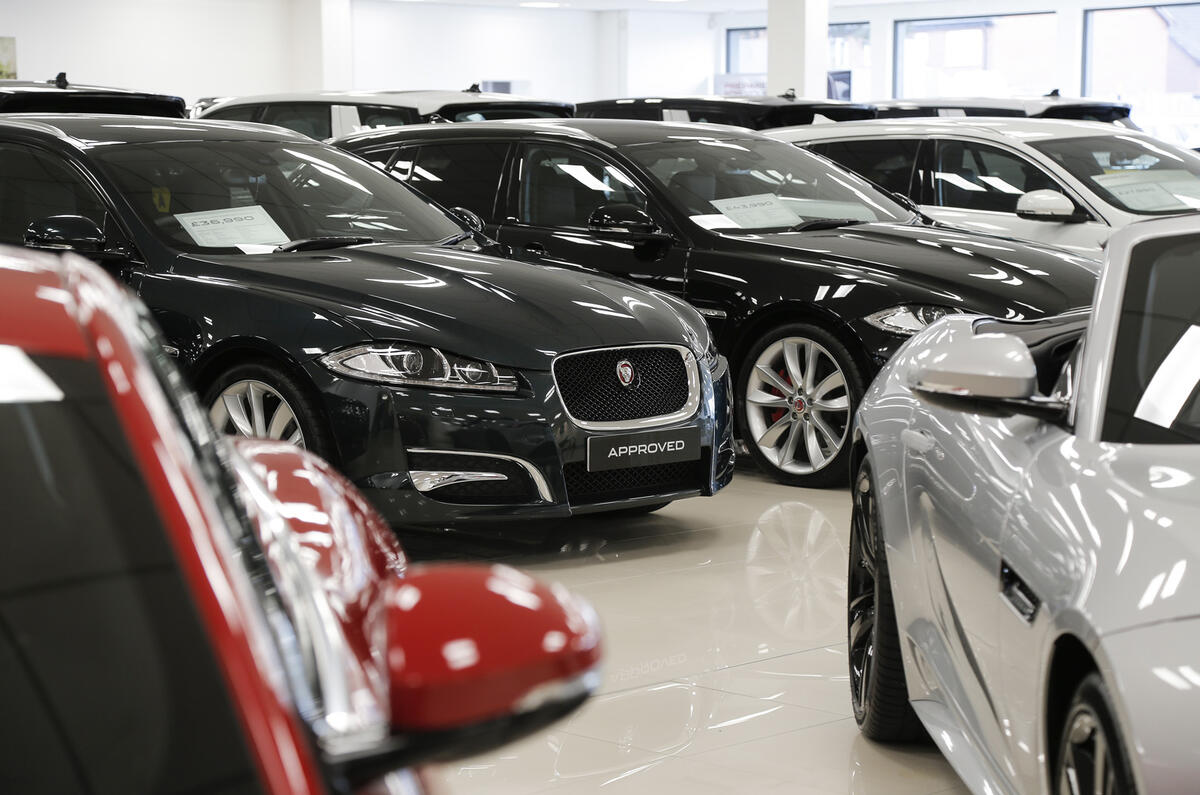New figures from the Society of Motor Manufacturers and Traders (SMMT) show a 39.5% year-on-year drop in new car registrations last month, making it the sector's "worst start to a year" since 1970.
A total of 90,249 new cars were registered in the UK last month, down from 149,279 in January last year - two months before the country went into its first lockdown, when the pandemic took hold.
Now, in the third nationwide lockdown, the enforced closure of showrooms continues to have an impact, with the SMMT recording sharp declines across several segments despite the lockdown rules allowing dealerships to operate a click-and-collect service.
"Opening dealerships as soon as it is safe to do so would help re-energise consumer confidence, supporting jobs and a green recovery," said the SMMT, noting that any drop in registrations has a knock-on effect on the manufacturing sector.
The organisation has now revised its forecast for 2021, predicting 1.9 million registrations for the year, down more than 100,000 units, highlighting that while this would still be an increase of 15.7% over 2020, it "would be a very subdued market in historical terms".
SMMT chief executive Mike Hawes called on the government to allow showrooms to reopen as soon as possible: "Following a £20.4 billion loss of revenue last year, the auto industry faces a difficult start to 2021. The necessary lockdown will challenge society, the economy and our industry’s ability to move quickly towards our ambitious environmental goals.
"Lifting the shutters will secure jobs, stimulate the essential demand that supports our manufacturing, and will enable us to forge ahead on the Road to Zero. Every day that showrooms can safely open will matter, especially with the critical month of March looming."
Private sales dropped 38.5% year on year, with fleet sales falling further still, at 39.7%, and business sales plummeting by 56.0%.
Conventionally fuelled cars experienced the most significant declines, with demand for petrol models falling by 50.6% and diesel 62.1%, but the SMMT noted that, "on a positive", electrified vehicle uptake grew substantially during the period.
Some 6124 plug-in hybrids were sold in January, up 28% on the same month in 2020, and the uptick was even more dramatic for pure-electric cars, which accounted for 6260 registrations - up from 4054 last year. That trend can be partially attributed to the fact that there were 40 mainstream pure-electric cars on sale last month, compared with just 22 in January 2019.
Combined, plug-in hybrids and fully electric cars accounted for 13.7% of all new car registrations and they are expected to make up more than one in seven registrations this year.
Mild hybrids (MHEVs) also had a relatively strong month, with diesel MHEV sales rising 26.5% and sales of petrol versions climbing by 40.2%.
Strong electrified car sales in January follow a year in which such models surged in popularity, accounting for one in six new car registrations. "In fact," said the SMMT, "more than half of all BEVs registered in the past two decades were registered in 2020 alone", meaning the year "delivered the cleanest vehicles in history".








Join the debate
Add your comment
The people buying EVs now are not indicative of the majority of car buyers who are now losing their jobs, earning less, or working from home so not needing their cars as much (and companies are liking the idea of letting people work from home after all this is over now they've seen the benefits).
Once Covid is dealt with, the car manufacturers need to reassess their rapidly increasing prices and the models they provide if they want to survive is an increasingly cash-strapped society where people are getting used to not needing their cars as much and are not going to be fooled by monthly payments hiding ridiculous bottom line prices any more.
Opening dealerships as soon as it is safe to do so would help re-energise consumer confidence, supporting jobs and a green recovery," said the SMMT
No 5hit Sherlock.
If in a parallel universe the chancelor make V8s free of Company car tax they would soon be seen to be zooming up the sales charts. People might like EVs once they have them, but they are getting them to save tax. It will be interesting to see what the second hand market makes of this glut of EVs when they hit the used car dealers in 3 years time.
A private bev will not that save much in tax, they will however get a far cheaper to run car that is smoother, quieter, pretty quick with lower running costs and one that does not pump out fumes onto the pavement. What happens after 3 years, pretty good judging by secondhand model s prices, want to see appalling depreciation just look at phevs.
And, of course, whilst drivers of conventionally fuelled vehicles subsidise those buying electric ones, how long will it be before the tax system changes so that owners of electric vehicles pay more? The government will only stand the shortfall for so long.
In which case the sooner you get a bev the more you will save.
My car has only moved less than 900 miles since August registration, you can't , at the moment, go for a drive like you would if your car hasn't used for a while, so, is that saving money?, what about unused car insurance?, why no automatic refunds?, same goes for Road tax, EV cheap driving will get dearer as we get nearer to 2030, as said, the Government isn't going to subsidise Ev drivers forever,and, ICE Cars won't disappear in 2030, that'll not happen maybe for a decade after the cut off date.